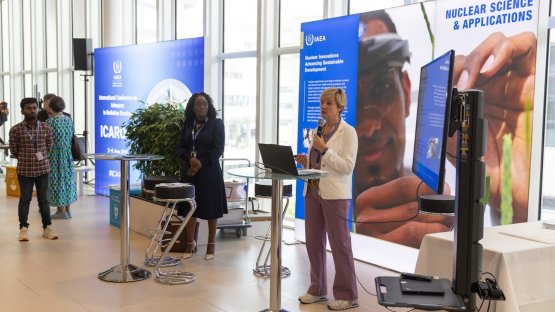The IAEA has expanded its interactive e-learning course on radiation biology with four new modules designed to strengthen global expertise in using ionizing radiation to combat cancer. Understanding how ionizing radiation impacts cancer cells and normal tissues at the cellular and molecular level is essential for developing effective treatment protocols, safety standards and protective measures.
With 35.3 million new cancer cases and 18.5 million cancer-related deaths anticipated in 2050, the IAEA-led Lancet Oncology?Commission on Radiotherapy and Theranostics shows that the radiation medicine workforce must grow by over 60 per cent from 2022 levels to meet this demand. For the more than 84?000 radiation oncologists, 47?000 medical physicists and 141?000 radiotherapy technologists who are needed by then, radiobiology will be essential to their medical knowledge and education. “For cancer patients, advancing radiobiology knowledge not only translates into high-quality care that is safe and effective but also drives cutting-edge research, innovative therapies and novel technologies which leverage radiobiological phenomena,” pointed out May Abdel-Wahab, Director of the IAEA Division of Human Health.?
The IAEA’s e-learning course on Basic Clinical Radiobiology — with its first four modules released in 2024 — has been helping to build the cancer care workforce of the future by covering the fundamental principles of radiation biology. Launched at the International Conference on Advances in Radiation Oncology in June 2025, the new content focuses on the clinical applications of radiobiology and can be used to supplement professional training programmes for radiotherapy professionals such as radiation oncologists, radiotherapy technologists and medical physicists.?
“The additional modules that have been released focus on the integration of radiobiology into clinical practices to optimise treatment plans that maximise tumour control and minimise damage to healthy tissues,” said Sandra Ndarukwa, Associate Education Officer (Radiation Oncology) and the IAEA specialist responsible for the course. “This also allows personalised treatment approaches for radiation doses and schedules that are tailored to individual patient characteristics and tumour biology.”?








